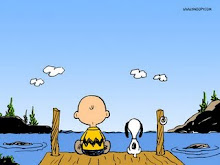Conspirator

- Brian
- I went out there in search of experience To taste and to touch and to feel as much As a man can before he repents.

To talk of universal, natural, or human rights is to connect respect for human life and integrity with the notion of autonomy. It is to conceive people as active cooperators in establishing and ensuring the respect with is due to them (12).Autonomy is central to a person's respect. This has brought about issues for our society, such as when a person's individuality is offensive to culture norms (think the hippy, or perhaps the stereotypical flamboyant gay person). Yet, we continue to value autonomy and have difficulty thinking of impeding or censoring it, so whatever negative consequences it brings, we choose autonomy with its potential negativity over no autonomy.
It's not that comparable horrors don't occur...[in the West today]. But they are now seen as shcoking aberrations, which have to be hidden. Even the "clean" legal executions, where the death penalty is still in force, are no longer carried out in public, but deep within prison walls (13).
This sense of the importance of the everyday in human life, along with its corollary about the importance of sufferings, colours our whole understanding of what it is truly to t human life and integrity (14).
